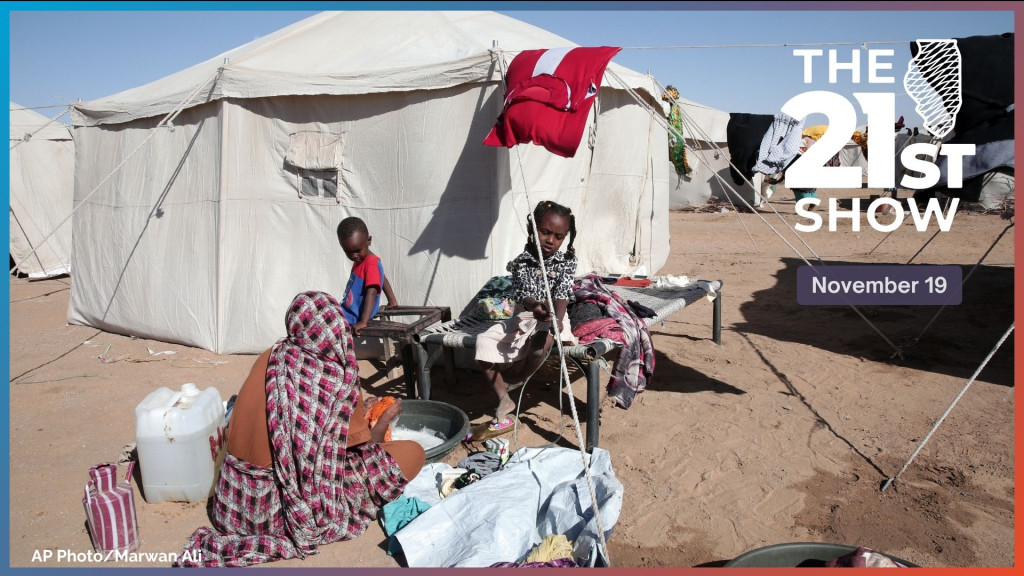Mass killings, displacement, and famine: Sudan’s overlooked humanitarian crisis

A Sudanese woman displaced from El-Fasher washes clothes outside her family's tent as children sit nearby at the newly established El-Afadh camp in Al Dabbah, in Sudan's Northern State, Sunday, Nov. 16, 2025. AP Photo/Marwan Ali
In 2019, Sudan's military overthrew dictator Omar al-Bashir. He had ruled the country for 30 years and the coup d’état brought hope for many in the country.
But in 2023 a civil war broke out and a group known as the Rapid Support Forces took power. The paramilitary group is backed by the UAE and has enacted mass violence across the country specifically on Sudan’s minority Black ethnic groups. More than 150,000 people have been killed and an estimated 12 million have been displaced, according to a report from the BBC. Despite the many atrocities happening in the country including sexual violence towards women and girls and starvation, it's a crisis that has not received as much international attention as other recent conflicts.
A Sudanese-American human rights lawyer and another expert whose work involves a mission to end mass violence in some of Africa’s conflict zones co-authored an essay in the New York Times outlining what role the U.S. can play in ending the brutal war. They join the program today.
GUESTS
Suad Abdel Aziz
Executive Director, Decolonize Sudan
Human Rights Lawyer
John Prendergast
Co-Founder, The Sentry
Founding Director, The Enough Project
Director of African Affairs, National Security Council under President Bill Clinton

